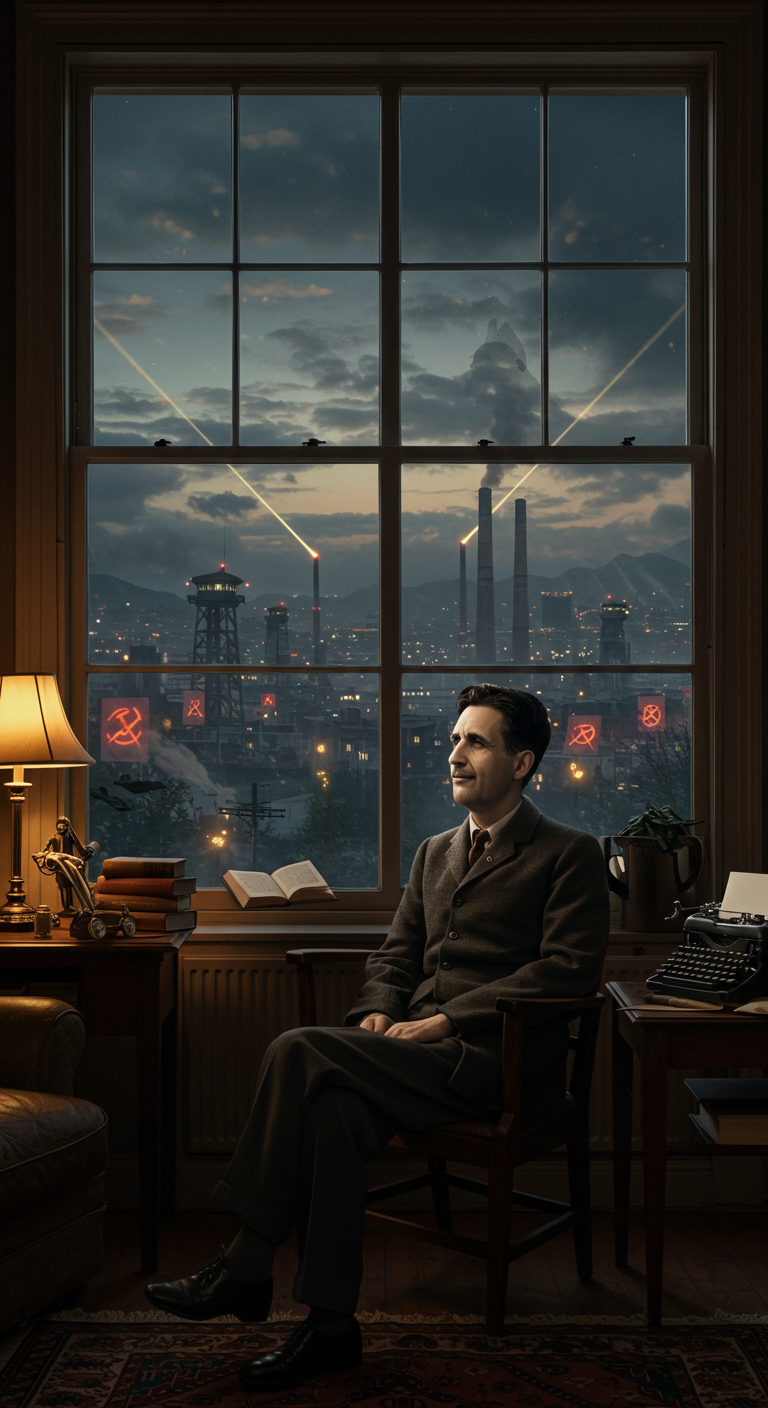Why George Orwell’s Pen Still Haunts Us Today
 Fascinating Facts
Fascinating Facts
-
Rebel with a Cause: Orwell fought in the Spanish Civil War, surviving a throat wound, only to pen Homage to Catalonia, exposing the gritty truth of ideological betrayal.
-
Big Brother’s Birthplace: The dystopian nightmare of 1984 was inspired by Orwell’s work at the BBC, where propaganda tactics sparked his chilling vision of surveillance.
-
Not Just a Pen Name: Born Eric Arthur Blair, he chose “George Orwell” to shield his family from scandal, crafting a persona as rugged as his prose.
-
Animal Farm’s Rejection Slip: Animal Farm was rejected by multiple publishers, including T.S. Eliot, who called it “Trotskyite”—yet it became a literary legend.
Quote
“In a time of deceit, telling the truth is a revolutionary act.”
— George Orwell, a timeless jab at those who twist reality.
Biography
George Orwell, born Eric Arthur Blair in 1903 in colonial India, wasn’t just a writer—he was a conscience with a typewriter. Raised in England, his early life was a tug-of-war between privilege (Eton scholarship) and hardship (his family’s “shabby-genteel” finances). Young Eric loathed the class system, a fire that burned through his later works. Ever wonder what turns a boy into a revolutionary? For Orwell, it was policing Burma’s oppressed as a colonial officer. He quit, disgusted, and vowed to write truth to power.
By the 1930s, Orwell was diving headfirst into the underbelly of society. He scrubbed dishes in Paris kitchens and tramped through London’s slums, chronicling the forgotten in Down and Out in Paris and London. His pen didn’t just describe poverty—it made you feel the cold, the hunger, the indignity. Then came the Spanish Civil War. Orwell fought with the POUM militia, dodging bullets and betrayal. A sniper’s shot through his throat didn’t silence him; it fueled Homage to Catalonia, a raw account of ideals crushed by Stalinist treachery.
Back in England, Orwell’s health—ravaged by tuberculosis—fought his ambition. Yet he produced Animal Farm (1945), a razor-sharp allegory of Soviet tyranny. Publishers flinched; some called it too political. Orwell didn’t care. He knew the world needed to see power’s ugly face. 1984 (1949) was his final gut-punch, birthed in a damp Scottish cottage as he coughed up blood. Big Brother, Newspeak, the Thought Police—these weren’t just fiction. They were warnings, drawn from Orwell’s BBC days and the propaganda he’d seen twist truth.
His personal life? Messy, human. He married Eileen O’Shaughnessy, a brilliant woman who shaped his work until her death in 1945. He adopted a son, Richard, and later married Sonia Brownell, but happiness was fleeting. Orwell’s relentless drive—writing through fevers, chain-smoking despite doctor’s orders—killed him at 46 in 1950. His lowlights? Stubbornness, occasional dogmatism, and a knack for alienating allies. But his highlights—unflinching honesty, moral courage—made him immortal.
 Orwell wasn’t perfect, but he was fearless. He saw the world’s cracks—class, tyranny, lies—and dared to name them. His words still sting because they’re still true. Ever read 1984 and felt a chill? That’s Orwell, whispering from the grave: Don’t let this happen.
Orwell wasn’t perfect, but he was fearless. He saw the world’s cracks—class, tyranny, lies—and dared to name them. His words still sting because they’re still true. Ever read 1984 and felt a chill? That’s Orwell, whispering from the grave: Don’t let this happen.
Sources: Orwell’s letters and essays (The Orwell Foundation), Homage to Catalonia, 1984 forewords, and D.J. Taylor’s Orwell: The Life (2003) for biographical details. No speculation here—just the man, his times, and his truth.
Hashtags
#GeorgeOrwell #1984 #AnimalFarm #DystopianLiterature #TruthToPower
